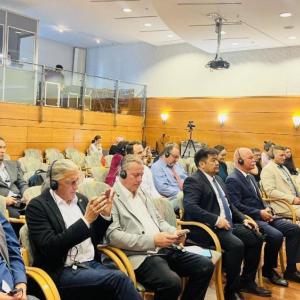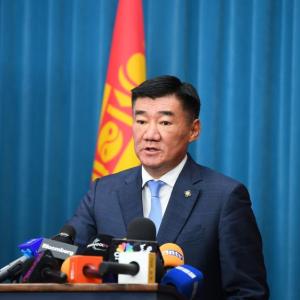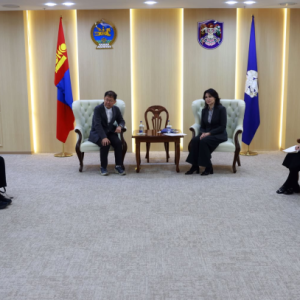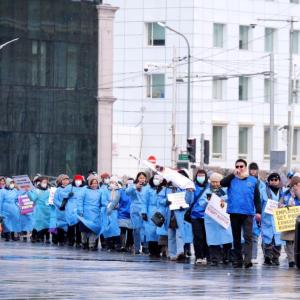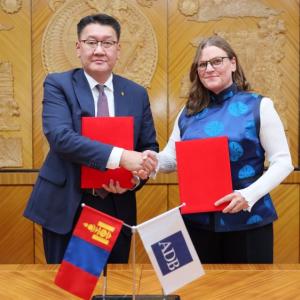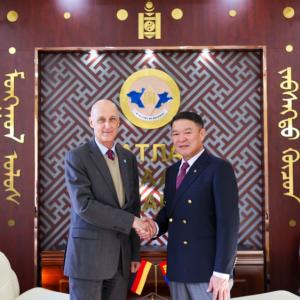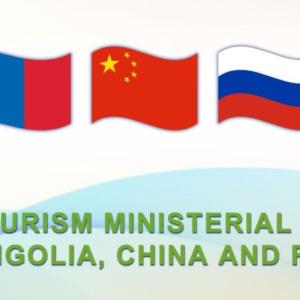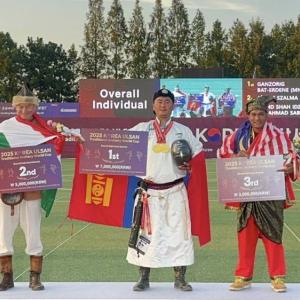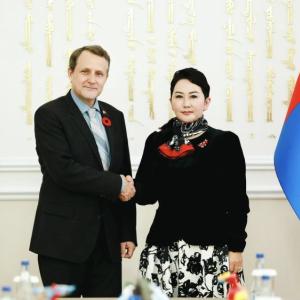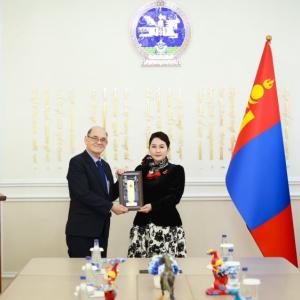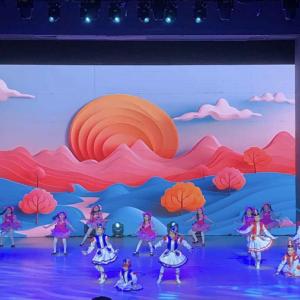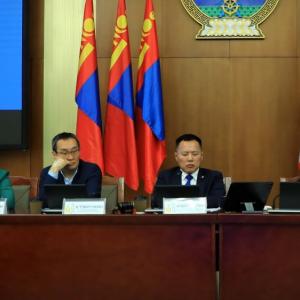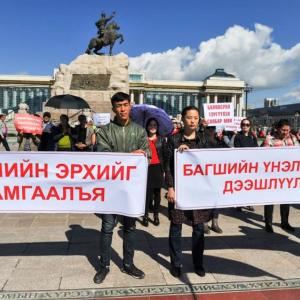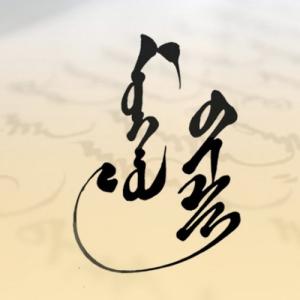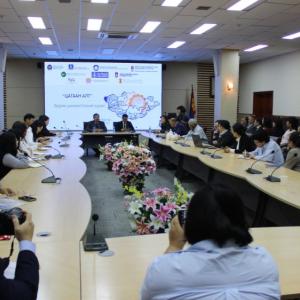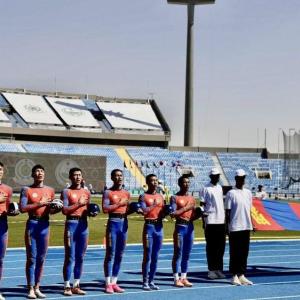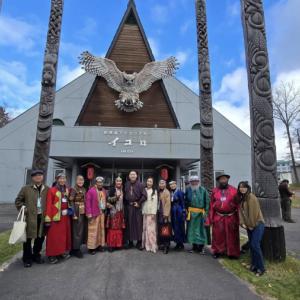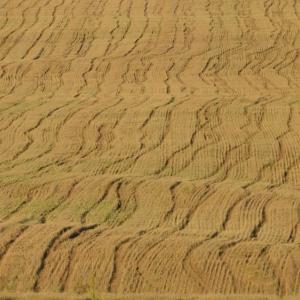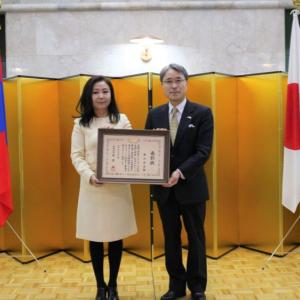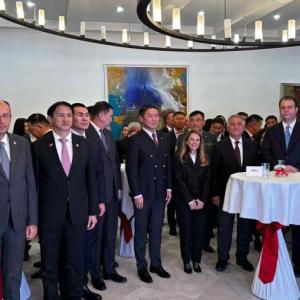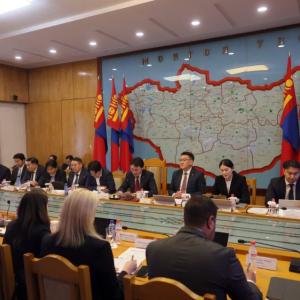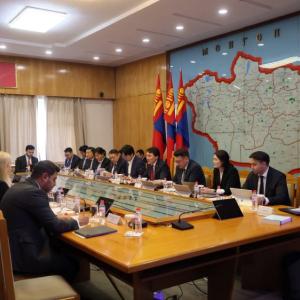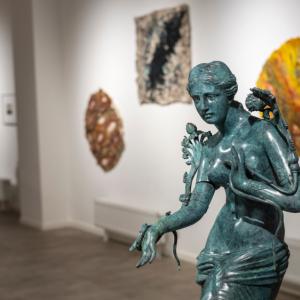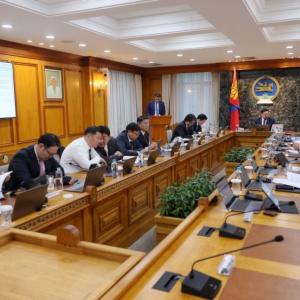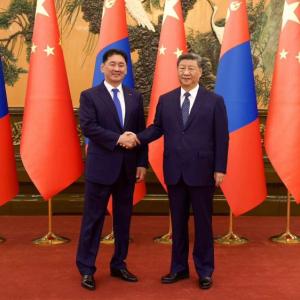Awards Presented to the Winners of the “S. Dashdoorov” Academic Research Competition
Art & Culture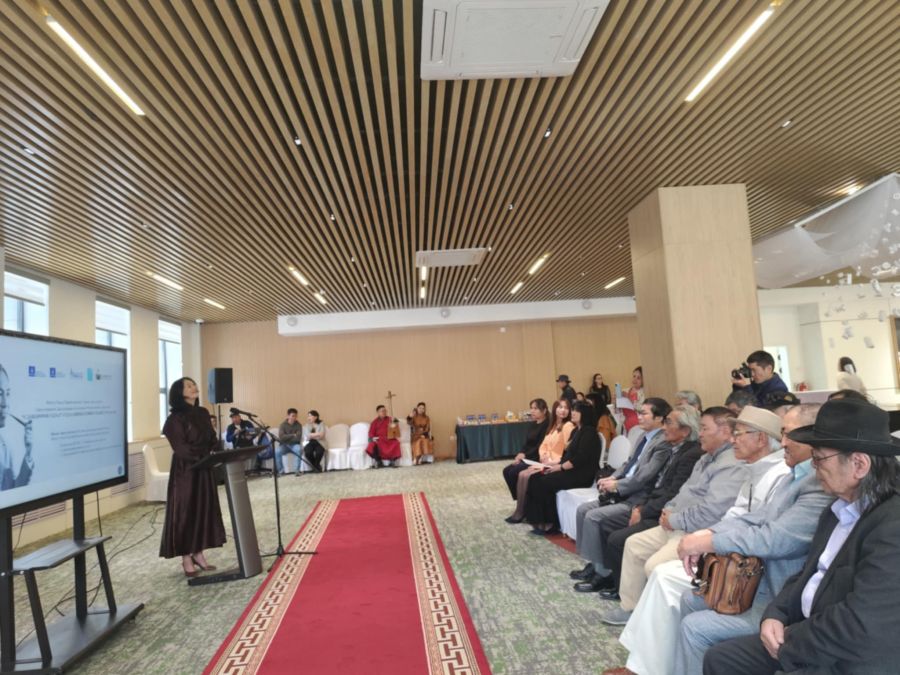
Ulaanbaatar, June 6, 2025 /MONTSAME/. Winners of the Second National “S. Dashdoorov” Academic Research Competition, dedicated to the 90th anniversary of the birth of Laureate of the State Premium and People’s Writer of Mongolia Dashdoorov Sormuunirsh, were announced and awarded on June 4, 2025.
Out of the 27 research papers submitted by researchers, journalists, doctors, teachers, and university students, first place was awarded to “Dashdoorov Sormuunirsh and Mongol Mentality” by Dr. G. Batsuuri, a professor at the Mongolian National University of Education, “Re-experiencing Dashdoorov’s Poetry” by Dr. D. Urnukhdelger, a professor Khovd University, was named runner-up, while “Analyzing the Mongolian National Mentality in S. Dashdoorov’s Prose” by Dr. B. Munkh-Erdene, an employee at the Institute of Language and Literature, secured third place in the research competition, jointly organized by the Ministry of Culture, Sports, Tourism, and Youth (MOCSTY), the Ministry of Education, and the National Library. Additionally, special prizes were awarded to G. Batjavkhlan for “Archetypal Qualities in 'The Snake and the Magpie' and ‘The Mothering Creature' and B. Maralgua for “Literary Analysis of the First of Ten Tales by S. Dashdoorov – ‘The Golden Swallow’.” A collection of all the submitted work will be printed.
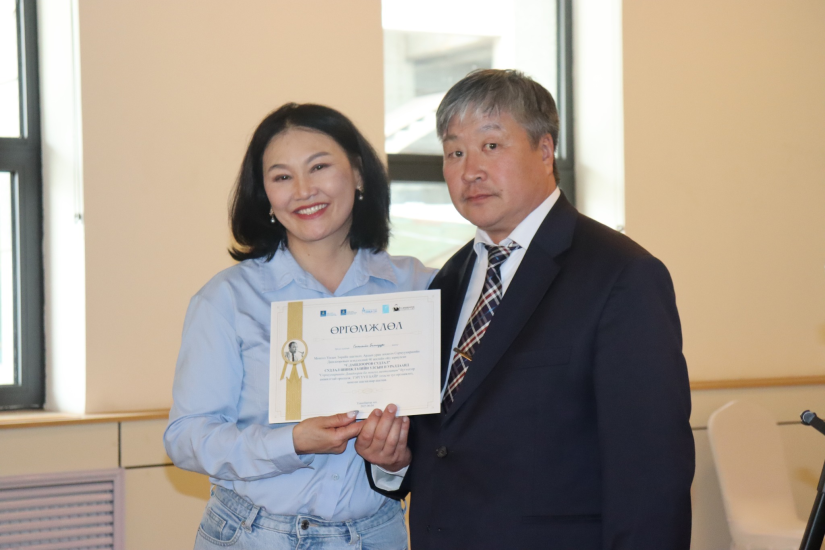
Director of the National Library of Mongolia, Ichinkhorloo Bayarkhuu, emphasized in her opening remarks at the awards ceremony that beyond commemorating S. Dashdoorov’s 90th birthday, the contest has explored the writer’s prolific biography and the unique legacy he contributed to the Mongolian literary world, underscoring the true meaning and far-reaching impact of a People’s Writer.
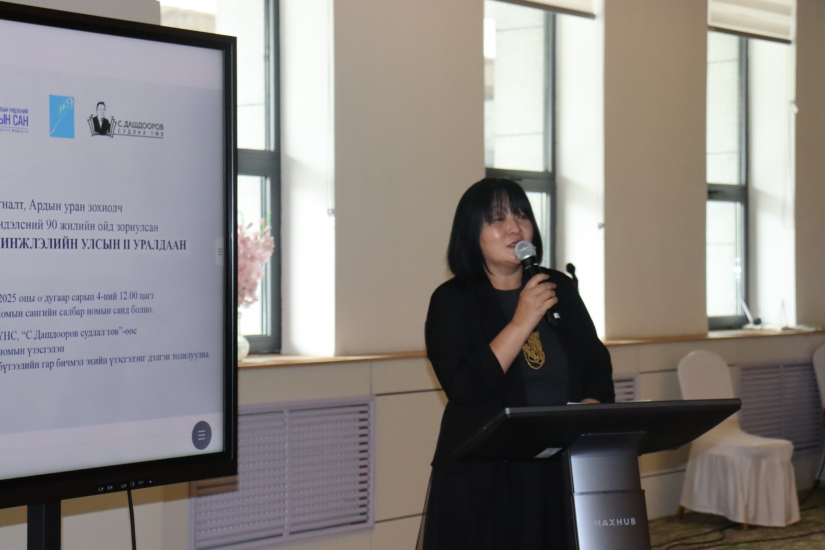 B. Sergelen, Head of the Department for Coordination of Culture and Art Policy Implementation at the MOCSTY, noted that S. Dashdoorov left a significant mark with his work in all literary genres, including poetry, short stories, prose, novels, epics, plays, film, and opera, and named S. Dashdoorov as an important representative of writers whose work reflected the values of nomadic culture as well as the traditions and lifestyle of the Gobi people. He also added that through this competition, the MOCSTY aimed to develop Mongolian literary criticism, familiarize younger generations with the writer’s creative work, and improve the proficiency of college youth.
B. Sergelen, Head of the Department for Coordination of Culture and Art Policy Implementation at the MOCSTY, noted that S. Dashdoorov left a significant mark with his work in all literary genres, including poetry, short stories, prose, novels, epics, plays, film, and opera, and named S. Dashdoorov as an important representative of writers whose work reflected the values of nomadic culture as well as the traditions and lifestyle of the Gobi people. He also added that through this competition, the MOCSTY aimed to develop Mongolian literary criticism, familiarize younger generations with the writer’s creative work, and improve the proficiency of college youth.
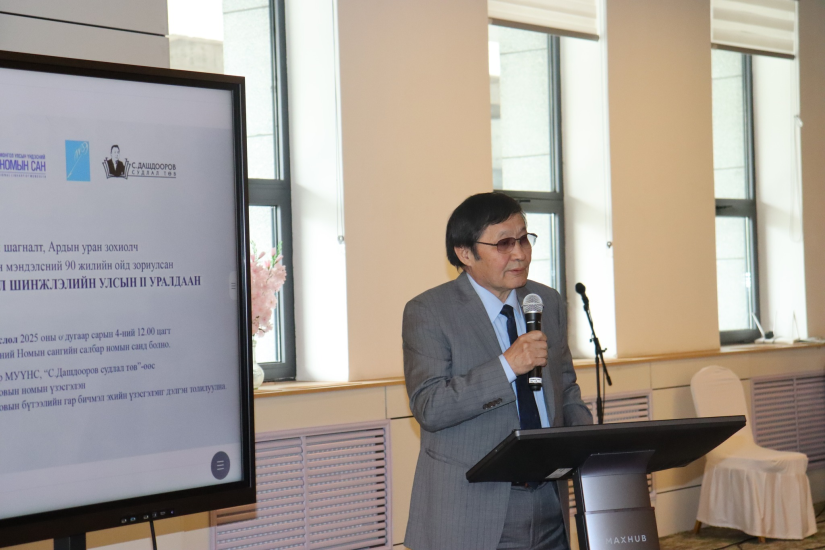 Honored Cultural Figure, literary scholar and critic, columnist, writer, PhD., Tsendjav Dolgor noted, “The judging process focused on the standards of 21st-century literary criticism and how this year’s entries differ from the previous one. Jury members gave their evaluations and exchanged opinions, taking into careful consideration novelty, uniqueness, national identity, creative invention, value, scope, as well as the usage of literary theory, linguistic methodology, and expression. S. Dashdoorov’s literature vividly captures the Mongolian spirit – its way of thinking, feeling, imagining, and living – expressed through deeply rooted cultural traits embedded in the national psyche, all the while embodying Mongolians’ innate love and devotion to the ancestors, the land, the motherland, and fellow Mongol people. What’s remarkable is that his works are devoid of any socialist-era party propaganda. Through self-actualization, the author has created works that transcend time and endure centuries.”
Honored Cultural Figure, literary scholar and critic, columnist, writer, PhD., Tsendjav Dolgor noted, “The judging process focused on the standards of 21st-century literary criticism and how this year’s entries differ from the previous one. Jury members gave their evaluations and exchanged opinions, taking into careful consideration novelty, uniqueness, national identity, creative invention, value, scope, as well as the usage of literary theory, linguistic methodology, and expression. S. Dashdoorov’s literature vividly captures the Mongolian spirit – its way of thinking, feeling, imagining, and living – expressed through deeply rooted cultural traits embedded in the national psyche, all the while embodying Mongolians’ innate love and devotion to the ancestors, the land, the motherland, and fellow Mongol people. What’s remarkable is that his works are devoid of any socialist-era party propaganda. Through self-actualization, the author has created works that transcend time and endure centuries.”
Born in 1936 in Delgerkhangai soum of Dundgovi Province, S. Dashdoorov was professionally trained as a teacher and writer. He worked as chief editor at the “Mongol Kino” studio, then as a researcher at the Ministry of Defense before becoming Executive Secretary of “Tsog” magazine. Eventually, in 1975, the author was awarded the State Prize for his novel “Goviin Undur” and received the title of People’s Writer of Mongolia in 1997.

Since 1956, he has authored numerous works, including poetry collections such as “My People”, “Ode to the Gobi”, “Rainbow Over the Steppe”, “The Steppe and I”, “Mongolia”, “The Mottled Hills of My Homeland”, “The Road of Blessings”, “The Rain of Time”, and “The Silence of a Silver Night”, short story collections like “Light of the Steppe”, “The Apple of War Years and the School’s Chestnut Horse”, “The Blushing Horizon”, “When Peace Is in the Air”, “The Come-And-Go World”, “The Silver Moon of the Countryside”, “Our World”, and “Birds of Many Lakes”, and novels, namely “Undur Eej”, “Echoes of the Steppe”, “The Distant Blue Mountains”, “Girl Next Door, Aligermaa”, “Yunden of the Red Home”, “Blessings of the Vast Steppe”, “The Singing Dunes of Khongor”, “Long Autumn”, and “Goviin Undur”.
His epic poetry works include “Morning”, “Steed”, “Mongolia”, “Russian Village”, “Gun Galuutai”, “The Year of the White Mouse”, “Kazbek”, “Autumn of '45”, “Minii Sulin Kheer”, and “Oath”. S. Dashdoorov also wrote screenplays such as “Echoes of the Steppe”, “Grandmother Undur”, “The Legend of Ekh Burd”, “The Year of the Eclipse”, “Where is the Great Mountain?” (in collaboration with Czechoslovakia), “The Storm Clears”, “At the Start of a Long Road”, “Blessings of the Vast Steppe”, “Chimgee's Birthday”, and “Spotted Prose” (co-written with Turbat Damba). In addition, he wrote the operas “Amarsanaa” (with Namdag Donrov), “Marco Polo”, and “Ariunzul”. He also penned lyrics for songs such as “The Flower Left on the Road”, the soundtrack “First Love” from the film “Unforgettable Autumn”, and the theme song of the motion picture “Joy of the Countryside”.
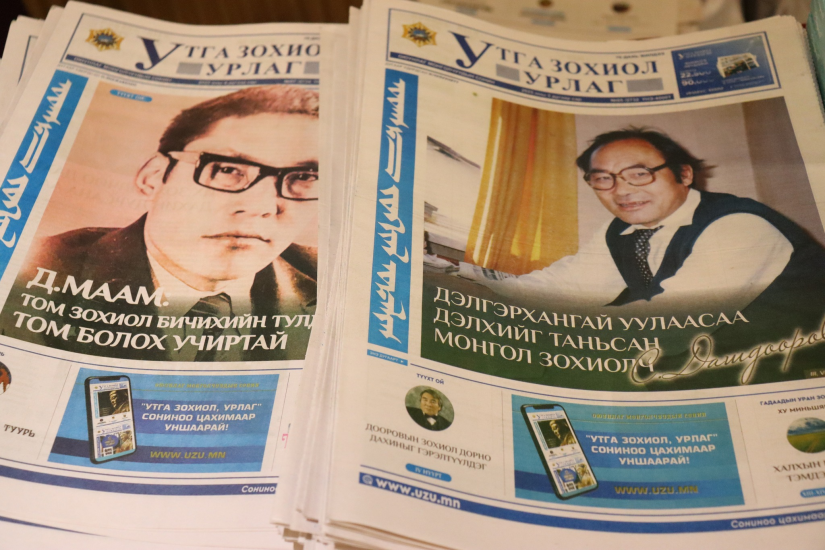
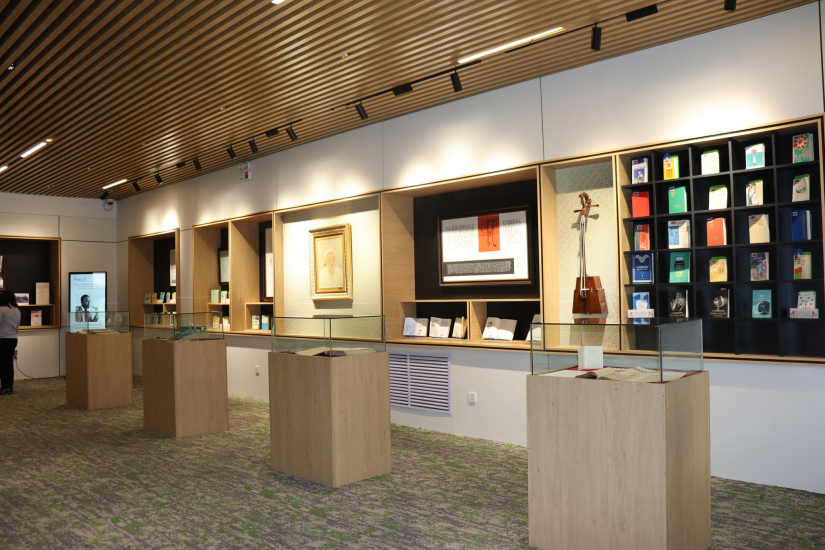
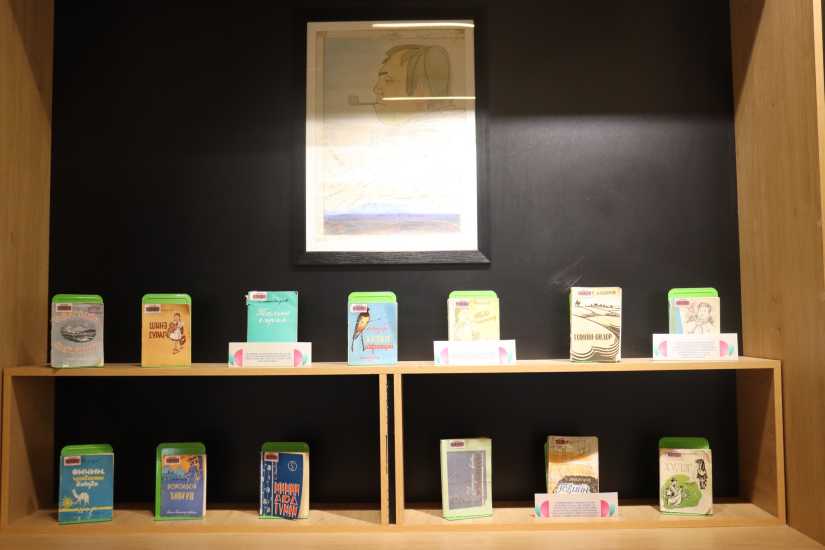
 Ulaanbaatar
Ulaanbaatar







